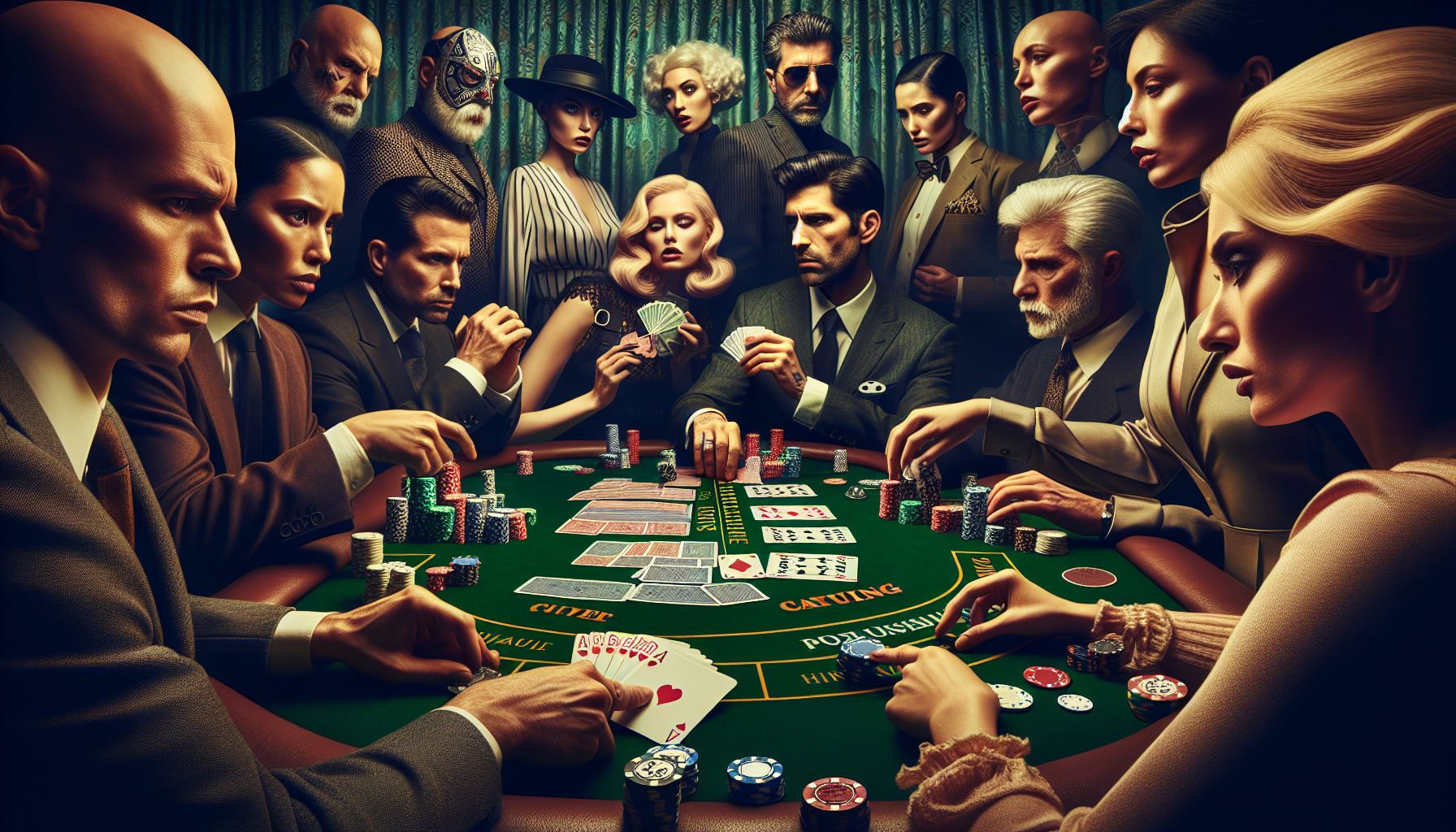Poker, unlike most casino games, is not merely a contest of luck. The fundamental nature of poker is a tussle of wits, Bluffing and Winning in Poker strategy and psychological warfare between individuals who use cards as their tools. In this elaborate and riveting battleground, knowing the ins and outs of poker psychology, particularly the practice of bluffing, can make all the difference between losing and winning.
Introduction
In poker, the player’s primary weapon is deception. The game lies not in playing the cards but in playing the man across the table. Bluffing, in simple terms, Bluffing and Winning in Poker is the act of pretending to hold a stronger hand than one actually does. While being an integral tool in a poker player’s repertoire, bluffing is also a subtle art that needs careful study, a keen eye and a sharp mind.
The Psychology of Bluffing
Bluffing in poker is all about creating a narrative – one that convinces other players of the superior strength of your hand. This makes bluffing a fundamentally psychological ploy, working primarily on controlling and manipulating the perceptions, assumptions and responses of fellow players.
Bluffing successfully requires an understanding of your opponents’ psychology. Their playing proclivities, history of past betting, ability to match bluffs, and more than often, their emotional state, all come into play. This is where the ability to “read” opponents becomes invaluable. Every twitch, hesitation, increase in bet size, or even an involuntary pupil dilation can be a hint to the strength of their hand, or the lack thereof.
The Successful Bluff – It’s All in the Timing
A successful bluff is not just about creating a grand illusion of a powerful hand; it’s also about choosing the perfect moment to strike. Knowing when to bluff could tip the scales in your favor significantly.
Typically, bluffing works best against one or two opponents. It’s statistically harder to convince more than two people at a time that you have a strong hand when you don’t. But there are exceptions, especially when the situation and the players’ psychology present the perfect opportunity.
A large pot size can often limit successful bluffing. Players tend to be more resistant to folding when a lot is at stake. Bluffing can work better in earlier betting rounds when the pot is smaller.
The Art of the Semi-bluff
An interesting variation of the bluff is the semi-bluff. This is when a player bluffs with a hand that might not be the best at the moment but has the potential to become the best hand. It’s essentially a fallback strategy, ensuring that even if the bluff is called, there’s still a chance to win.
Reading Tells: The Key to Counter-Bluffing
Counter-bluffing – a defense mechanism against bluffs – is just as crucial as bluffing in the game of poker. It’s like a game of chess, where understanding the opponent’s moves is as important as planning yours.
An essential part of counter-bluffing is the ability to read other players’ tells – the physical or verbal cues that players give unconsciously that can indicate their hand’s strength. This requires a high level of observational skills, understanding of human psychology, and experience in reading behaviors.
Bluffing and its Ethical Implications
Some might consider bluffing to be unethically deceptive. Still, it’s essential to remember that poker is not a game of pure chance, but a strategic, mind-driven game where psychological weapons are fair. Understanding the role of bluffing in a game is key to winning and an accepted poker strategy, akin to making strategic moves in a game of chess.
Conclusion
Poker is much more than just a card game. It’s an intricate psychological battle that tests the mental resilience, strategic skills and observational acumen of players. Bluffing, central to this battle, is not about deceit but about crafting and managing narratives, understanding and reacting to opponents, and seizing opportune moments for action.
Mastering bluffing doesn’t happen overnight. It requires deep understanding, keen observance, and gritty practice. But once mastered, it can transform the game, turning an average player into a formidable opponent. After all, poker is as much about playing the player as it is about playing the cards.
